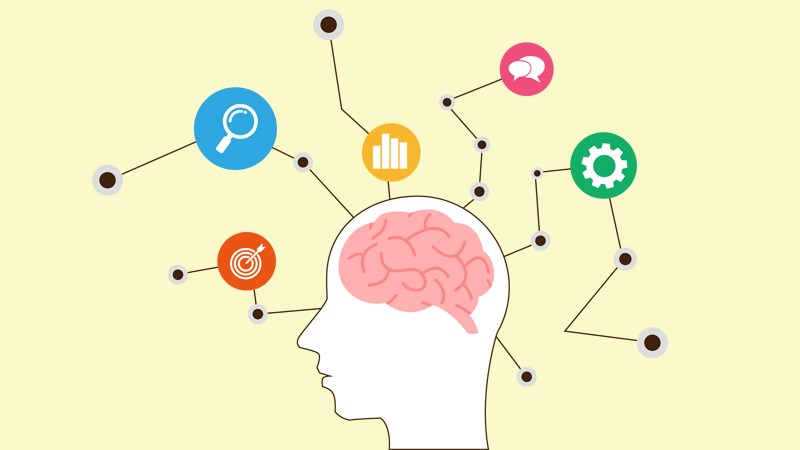EQ at Work: Emotional Intelligence in the Workplace & Its Positive Impact on Performance
In today’s fast-paced and competitive business world, companies are constantly looking for ways to improve their performance and gain a competitive edge. While technical skills and job experience are important factors, there is another aspect that has been gaining increasing attention – emotional intelligence (EQ). The ability to manage emotions effectively is not only crucial in personal relationships but also in the workplace. In this article, we will explore the concept of EQ at work and its positive impact on performance.
Personal Competencies: Self-Awareness and Emotional Management
Definition of Self-Awareness
Self-awareness is the ability to recognize and understand one’s own emotions, values, strengths, and weaknesses. It is an essential aspect of emotional intelligence and plays a crucial role in the workplace. Those who possess high levels of self-awareness are able to accurately perceive their emotions and how they affect their thoughts and actions.
Recognizing One’s Own Emotions
Being aware of one’s emotions is a fundamental step in developing self-awareness. Without this awareness, it is difficult to effectively manage emotions. For example, if an employee is feeling angry but is not aware of it, they may react impulsively and say or do something that could have negative consequences. However, if they are aware of their anger, they can take a moment to calm down and respond in a more productive manner.
Understanding Values, Strengths, and Weaknesses
Another important aspect of self-awareness is understanding one’s values, strengths, and weaknesses. Knowing what drives and motivates us, as well as our strengths and areas for improvement, allows us to make better decisions and set realistic goals. This is especially valuable in the workplace, where employees are constantly faced with challenges and must navigate relationships with colleagues and superiors.
Definition of Emotional Management
Emotional management is the ability to control one’s emotions effectively. It involves being able to regulate emotions in a way that is productive and does not harm oneself or others. People with high levels of emotional management are able to express their feelings in a healthy manner and have a good grasp on their emotions.
Controlling Emotions Effectively
Controlling emotions does not mean suppressing them or denying their existence. It means being able to recognize and understand them, then choosing how to respond. For example, an employee who receives constructive criticism may feel defensive and angry. However, with emotional management skills, they can acknowledge these emotions and respond calmly and constructively.
Examples of Effective Emotional Management
Effective emotional management can lead to improved communication, conflict resolution, and decision-making. For example, an employee who is under a lot of pressure at work may feel overwhelmed and stressed. With emotional management skills, they can identify their emotions and find ways to alleviate stress, such as taking breaks or talking to a colleague or supervisor.
The relationship between self-awareness and emotional management is crucial – without self-awareness, it is difficult to manage emotions effectively. Being aware of one’s emotions is the first step in regulating them and making conscious choices about how to respond.

The initial step toward emotional regulation and mindful responses is self-awareness of one’s emotions
Social Competencies: Social Awareness and Relationship Management
Definition of Social Awareness
Social awareness is the ability to recognize and understand others’ emotions. It involves empathy, the capacity to put oneself in someone else’s shoes and see things from their perspective. People with high levels of social awareness are able to pick up on cues and nonverbal communication, allowing them to better understand the emotions and needs of those around them.
Recognizing and Understanding Others’ Emotions
In the workplace, social awareness can be incredibly valuable. Whether it is a colleague, customer, or supervisor, being able to understand their emotions can help build strong relationships and foster a positive work environment. For example, if a colleague seems stressed, an employee with high social awareness may reach out and offer support, ultimately strengthening their relationship.
Benefits of Social Awareness in the Workplace
Social awareness can also lead to improved teamwork and collaboration. By understanding each other’s emotions, team members can effectively communicate and work together towards a common goal. This can also increase productivity, as conflicts can be resolved more efficiently, and relationships are strengthened.

Social awareness holds significant value in the workplace
Definition of Relationship Management
Relationship management is the ability to build and maintain effective relationships. This involves both personal and professional relationships and is crucial in the workplace. People with strong relationship management skills are able to establish trust and rapport with others, leading to positive and productive interactions.
Building and Maintaining Effective Relationships
Building and maintaining relationships requires effort and emotional intelligence. One must be able to recognize the emotions of others and respond appropriately. This involves actively listening, providing support, and communicating effectively. In the workplace, this can lead to stronger teams and a positive work culture.
Importance of Relationship Management in the Workplace
Effective relationship management is essential for a successful career. In the workplace, employees are constantly interacting with colleagues, supervisors, and clients. By building strong relationships, they can foster a positive and cooperative environment, which can lead to increased job satisfaction and better performance.
Relationship Skills that Contribute to Effective Relationship Management
There are several skills that contribute to effective relationship management. These include communication, empathy, conflict resolution, and collaboration. By continuously working on these skills, employees can improve their relationships with others and ultimately enhance their performance in the workplace.
Other EQ Competencies
Aside from the four main competencies (self-awareness, emotional management, social awareness, and relationship management), there are other EQ competencies that contribute to success in the workplace.

Motivation
Motivation is the internal drive to achieve goals and succeed. In the workplace, motivation is essential for completing tasks and working towards career advancement. People with high levels of EQ are able to use their emotions to motivate themselves and others. They understand what drives them and find ways to stay motivated even when faced with challenges.
Importance of Motivation in the Workplace
Employees who are motivated are more likely to put in the effort and dedication required to succeed. This not only benefits them but also the organization as a whole. Furthermore, highly motivated individuals tend to have a positive outlook and can inspire others to do their best as well.
Ways to Improve Motivation through EQ
One way to improve motivation through EQ is by setting realistic and achievable goals. People with high EQ understand their strengths and weaknesses and set goals accordingly. They also use their emotions to motivate themselves, such as reminding themselves of the rewards and benefits of achieving their goals.
Empathy
Empathy is the ability to understand and share the feelings of another person. It involves being able to put oneself in someone else’s shoes and see things from their perspective. In the workplace, empathy is crucial for building strong relationships and creating a positive work environment.
Definition of Empathy
Empathy is more than just sympathizing with others – it involves understanding their emotions and responding appropriately. People with high levels of empathy are able to listen attentively, read body language, and provide support and understanding when needed.
Why Empathy is Crucial in the Workplace
Empathy can lead to better teamwork, communication, and problem-solving. By understanding the emotions of others, employees can collaborate more effectively and create a supportive work environment. This can also reduce conflicts and improve overall job satisfaction.
Communication Skills
Effective communication is essential in the workplace. It involves being able to express oneself clearly and understand the messages of others. People with high EQ have strong communication skills, as they are able to use their emotional intelligence to understand how their words and actions affect others.
Effective Communication in the Workplace
In the workplace, effective communication can lead to improved relationships, better collaboration, and increased efficiency. Employees who communicate effectively are able to share ideas, resolve conflicts, and set clear expectations. This ultimately leads to a positive work environment and higher levels of productivity.
How EQ can Enhance Communication Skills
Emotional intelligence plays a significant role in communication. By being aware of one’s emotions and recognizing the emotions of others, employees can effectively communicate and build strong relationships. They are also able to adapt their communication style to different people and situations, leading to more successful interactions.
Problem Solving
Problem-solving is an essential skill in the workplace. It involves identifying problems and finding effective solutions. People with high levels of EQ are able to approach problems from a rational and calm perspective, using their emotions to inform their decisions.
Characteristics of Effective Problem-Solving
Effective problem-solving requires critical thinking, creativity, and the ability to manage emotions. This includes being able to remain calm under pressure and think logically through challenges. By using EQ, individuals can also consider the emotions and perspectives of others when solving problems, leading to more successful outcomes.
Using EQ to Improve Problem-Solving Skills
By improving their EQ, employees can also enhance their problem-solving skills. This includes self-awareness to recognize how their emotions may be clouding their judgment, empathy to understand the perspectives of others, and emotional management to stay calm and rational in difficult situations.
Leadership
Leadership is another important aspect of EQ in the workplace. While technical skills and experience are often necessary for leadership roles, high EQ can also greatly benefit those in leadership positions.
The Role of EQ in Leadership
Effective leaders must be able to manage their own emotions and understand the emotions of their team members. By being aware of their emotions and those of others, leaders can make better decisions, build trust, and motivate their team towards success. They are also able to communicate effectively and resolve conflicts, resulting in a positive work environment.
Examples of Successful Leaders with High EQ
There are many successful leaders who possess high EQ. One notable example is Elon Musk, CEO of Tesla and SpaceX. He has demonstrated strong emotional intelligence by understanding the needs and perspectives of his team members and using his emotional management skills to handle challenging situations. Other successful leaders with high EQ include Oprah Winfrey, Bill Gates, and Sheryl Sandberg.
Importance of EQ in the Workplace
EQ is becoming increasingly important in the workplace, as companies realize its positive impact on employee performance and overall organizational success.
Stress Management
Workplace stress is a common issue, with factors like heavy workload, tight deadlines, and lack of work-life balance leading to burnout. Having high levels of EQ can help employees manage stress effectively and maintain their wellbeing.
Common Workplace Stressors
Some common workplace stressors include high-pressure deadlines, conflicts with colleagues, and excessive workload. These can lead to physical and mental health issues if not managed effectively.
How EQ Helps in Managing Stress
Employees with high EQ are able to recognize and understand their emotions and address them in a healthy manner. This may involve seeking support from colleagues, taking breaks when needed, or using relaxation techniques. By managing stress effectively, employees can maintain their wellbeing and avoid burnout.
Positive Impact on Performance
Studies have shown that employees with high EQ tend to perform better in the workplace. This is due to several factors, including increased motivation, improved communication, and stronger relationships with colleagues.
Focusing on Organizational Goals Despite Obstacles
Employees with high EQ are able to stay focused on organizational goals despite any obstacles or challenges they may face. They use their emotional intelligence to overcome setbacks and find effective solutions to problems.
Increased Employee Motivation and Understanding of Emotions
High EQ individuals are also more motivated and driven to succeed. They understand their emotions and use them to fuel their determination and hard work. Furthermore, they are able to recognize and understand the emotions of others, leading to a deeper understanding of their own and their colleagues’ motivations.
Improved Communication and Shared Goals
Effective communication is another benefit of high EQ in the workplace. By being aware of their emotions and those of others, employees can communicate more clearly and build stronger relationships with their colleagues. This leads to better teamwork and shared goals, ultimately improving overall performance.
A Positive and Engaged Workforce
Having a positive and engaged workforce is crucial for organizational success. Employees who feel valued and understood are more likely to be satisfied with their job and put in the effort to achieve company goals. High EQ can contribute to a positive work culture by fostering strong relationships and open communication.
Stronger Relationships and Connections among Employees
High EQ also leads to stronger relationships and connections among employees. By understanding each other’s emotions, team members can work together more effectively and support each other through challenges. This creates a sense of camaraderie and teamwork, ultimately leading to improved performance.
Adaptability to Change through Effective Stress Management
In today’s rapidly changing business landscape, adaptability is key. Employees with high EQ are better equipped to handle change and stress, as they can manage their emotions effectively and maintain a positive outlook. This leads to a more resilient workforce that can navigate through challenges and continue to perform well.
Improved Efficiency through Empathy and Decision-Making
Empathy and decision-making skills also contribute to improved efficiency in the workplace. By understanding the emotions of others, employees can make decisions that benefit everyone involved. They are also able to adapt their communication style to different situations, leading to more effective interactions and increased productivity.
Career Advancement Opportunities for High EQ Individuals
In addition to the positive impact on performance, high EQ can also lead to career advancement opportunities. Employers value individuals with strong emotional intelligence, as they are able to work well with others, manage stress effectively, and make sound decisions.
Examples of Career Advancement through EQ
There are many examples of individuals who have advanced in their careers due to their high EQ. For instance, a manager with strong relationship management skills may be promoted to a leadership role due to their ability to build strong teams and foster a positive work environment. Similarly, an employee with high emotional management skills may be recognized for their ability to handle stressful situations and make rational decisions.
Why Companies Value Employees with High EQ
Companies recognize the importance of EQ in achieving their goals and creating a positive work culture. Employees with high EQ contribute to a more engaged and productive workforce, ultimately benefiting the organization as a whole. Furthermore, they are able to adapt to changes and handle stress effectively, making them valuable assets to any company.
Conclusion
Emotional intelligence is a crucial factor in personal and professional success. In the workplace, it can make a significant impact on performance, job satisfaction, and career advancement opportunities. By understanding and managing emotions effectively, employees can build stronger relationships, communicate more effectively, and navigate through challenges. Employers should recognize the value of EQ and prioritize its development within their organizations for a positive and successful workplace.








Post Comment